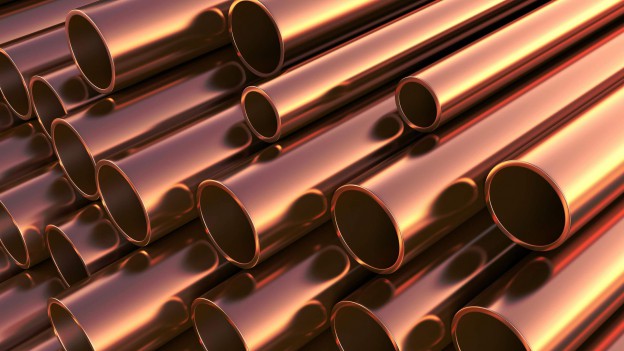You may want to consider MONEL nickel-copper alloys if you need high corrosion resistance and good strength but don’t want to pay for commercially pure nickel.
MONEL alloys include Nickel-Copper alloys, some of which have significant additions of other alloying metals to create high-quality, versatile materials.
Among the main benefits of Nickel Copper alloys is that they are similar in properties to commercially pure nickel yet are much more affordable, which can be useful for projects with a smaller budget. There are two different MONEL products available at Corrotherm, suitable for a variety of applications.
MONEL ALLOY 400
MONEL alloy 400 consists primarily of copper (28-34%), nickel (63%), and is derived directly from the nickel and copper ore bodies of Canada. The alloy was discovered by Robert Crooks Stanley in 1901 while he was working for the International Nickel Company ( INCO) and named after the company’s president, Ambrose Monell. For more than 100 years, it has been used in petroleum distillation tower internals, fasteners and fittings, pumps and valve internals.
The properties of this material make it suitable for other industry areas as well. Using cold work, it can be hardened by solid-solution alloys. The composition of this material ensures that it has high strength and toughness over a wide temperature range. With only a slight reduction in ductility and impact resistance at subzero temperatures, it has excellent mechanical properties. At liquid hydrogen temperatures, it doesn’t even undergo a ductile-to-brittle transition. Similarly, it performs well in extreme temperatures, making it an ideal choice for boiler feedwater heaters and other heat exchangers, as well as deaerating heaters.
Marine and chemical processing plants often use the material due to its excellent resistance to corrosive environments. Alloys with a high copper wire content are considered more resistant to attack by oxidizing media, for example. In flowing seawater, its corrosion rate is low, whereas stagnant conditions may cause stress and pitting corrosion. In most freshwater and industrial environments, however, the alloy is resistant to cracking and pitting caused by stress corrosion.
Alloys commonly used in engineering provide exceptional resistance to hydrofluoric acid up to boiling point and are considered to be the most resistant alloys. As a reducing agent, it is also resistant to sulfuric acid and hydrochloric acid.
MONEL ALLOY K-500
MONEL alloy K-500 is a variation of MONEL alloy 400. During melting, titanium (0.35-0.85%) and aluminium (2.3-3.15%) are added to create a precipitation-strengthened version. With the inclusion of other metals and an age hardening process, MONEL alloy 400 retains its excellent corrosion resistance while increasing strength and hardness.
Fasteners and valve internals made from MONEL alloy K-500 are used in oil extraction, marine and chemical processing. Hot or cold working and heat treating the alloy can give it the added toughness needed by these industries.
It can also be used to seal valve plate springs for valve plates, shafts and valve shafts, and sea water pumps. Additionally, it is widely used in continuous production of paper products to separate paper strips from rollers.
This material is well suited to valves, stems and internals in these environments because of its excellent corrosion resistance. MONEL alloy 400 can also be used for screens, housings, filters, piping, and fittings for seawater service.
